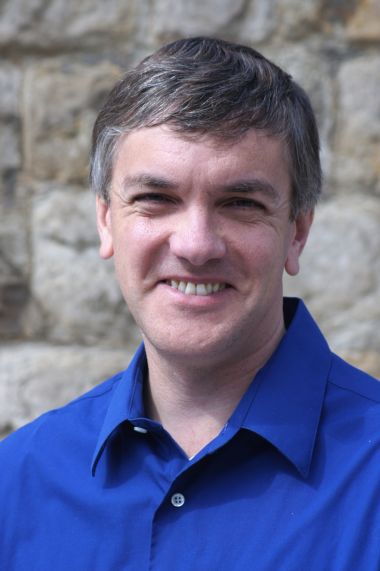New Wine: Women speakers, diversity and the Holy Spirit
It is now more than a year since Paul Harcourt took over as national leader of New Wine and there is a 'new energy' about the place, he says.
With the organisation's two weeks of 'United' summer festivals coming to an end, he sits down with Christian Today to reflect on them and his first full year in charge.

He admits taking on the role has felt like being in the shoes of Peter, who was 'invited by Jesus to step out of the boat into the impossible'. But with more than 23,000 flocking to the muddy Somerset fields over the past fortnight, the 28-year-old event seems to have recovered from a turbulent period after the previous leader Mark Bailey stepped aside last year.
Flicking through the 2017 programme, one thing that is immediately clear is the high number of women speakers.
Compared to equivalent evangelical festivals, New Wine comes remarkably close to achieving gender parity in its speakers across the festival. Out of 275 speakers running seminars, teaching streams and preaching in the main meetings this year, 126 (46 per cent) are women.
When put against 2016 figures from more conservative evangelical equivalents such as Keswick, where 87 per cent of speakers are male, and New Frontiers' Westpoint, with 82 per cent, New Wine is leaps and bounds ahead.
'We're not quite at full gender parity yet but 45 per cent is a big step forward from where we've been before,' Harcourt says. He says it is 'absolutely' something he has pushed and been focused on.
'We want as a movement to be more representative in our leadership in terms of age, geography and gender.'
As well as searching for more women speakers, the Anglican-dominated New Wine has made a point of welcoming Rachel Treweek, Bishop of Gloucester, and other women bishops to speak.
'The absolute truth is there are phenomenally gifted women speakers – both celebration speakers and Bible teachers and it's just been a joy to showcase them.

'Many of them are younger leaders coming through and we hope New Wine can be a platform where their voice can be heard and honed. We need to give them experience of larger venues and contexts that are going to draw more out from them.
'It's really not a case of being patronising because you are talking about very gifted people and it's a sea-change in the way the Church thinks.'
Where New Wine does less well is ethnic balance and diversity and it still struggles to shake off its heritage as a largely white, suburban Anglican gathering. Harcourt admits more could be done to improve its ethnic representation.
'New Wine historically has been a week-long camping event and not every section of British society does week-long camping,' he says.
So instead they are looking at different types of events to appeal to black majority churches and others.
New Wine is praised for being 'teachable' and this is certainly true of how it is handling criticism of the Church's demographics.
Unafraid to receive a rollicking from Bishop Philip North and confident in its position as a charismatic, evangelical movement, New Wine is lively, joyful and seems surer of where it is going and what it is offering.
While other festivals on the Christian summer calendar seem to wax and wane, New Wine appears to be stable, confident and looking to the future.











